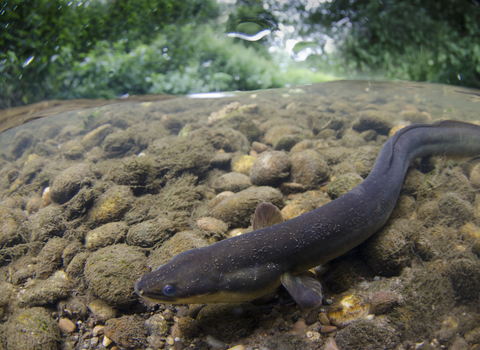
Eel ©Jack Perks
Eel
The eel is famous for both its slippery nature and its mammoth migration from its freshwater home to the Sargasso Sea where it breeds. It has suffered dramatic declines and is a protected species.
Scientific name
Anguilla anguillaWhen to see
January to DecemberSpecies information
Category
Statistics
Length: up to 1mWeight: 0.5-5kg
Average Lifespan: 15-70 years
Priority Species under the UK Post-2010 Biodiversity Framework. Listed as Critically Endangered on the global IUCN Red List of Threatened Species.
